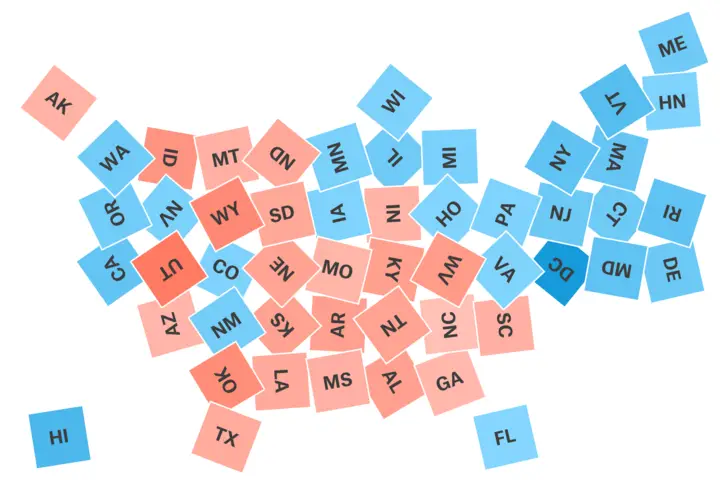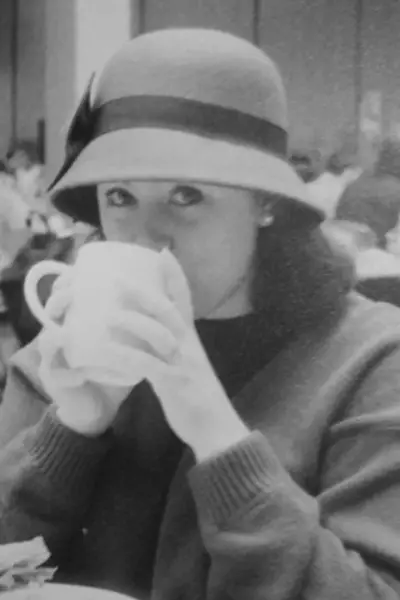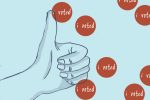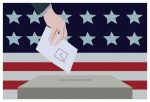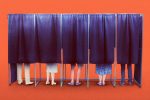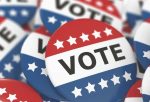Why You Should Register to Vote, Seriously
Voting ballots and diplomas are very similar in that they’re both worthless sheets of paper that symbolize a very valuable educational process.
By Jill Phelan, Saint Vincent College
I always held this truth to be self-evident: That politics and anything associated with the government were to be avoided like the plague.
Any political conversations were fraught with landmines. To even venture near a political discussion, I felt that I had to tread carefully; I never knew what was going to trigger a torrential rant of ideological vitriol. However, I’ve come to discover that staying on my side of the fence has traps of its own.
When I tell people that I’m twenty-one and still not registered to vote, they are usually shocked, and then severely judgmental. They assume that I’m not registered because I just don’t care, but I have my reasons as to why I never got involved with voting.
First of all, I may not know much of anything about the government, but I do know that it’s riddled with corruption. The system is flawed, and I didn’t want to give in to such a dishonest organization. I didn’t want to hear what the candidates had to say because I felt I could never believe any of them. It was all a show.
Sure they could promise free college and tax breaks, but I’d promise sunshine and rainbows too if I wanted to get elected president.
Secondly, I’ve never felt that anything I could do would matter. I would often wonder how my one vote would make any kind of a difference. I mean, do you know what exactly the Electoral College is? Because I didn’t. So I researched it and let me tell you, I’ve never felt like my vote was more worthless. Might as well throw your ballet into a bonfire.
I think my biggest turn off, though, was political discussions (or arguments). They almost always got out of control, and quite frankly they were intimidating. I’m not a confrontational person, and political discussions, in my experience, have always been more like heated confrontations. I’ve tried to avoid them at all costs, but with the presidential race going on right now, it’s been really hard to not get swept up in the conversation.
I’ve since come to realize that my problem is that I’m not educated enough. I’ve felt that I couldn’t participate in political debates because I just didn’t know anything about the subject matter. I was taught about the government and my civic responsibilities in school, yes, but it all went over my head.
In addition, I have to admit that I avoided learning more about politics out of fear. I was afraid to question what I believed to be right. What if the information that I discovered contradicted the very foundation of beliefs that was laid for me growing up? This question scared me the most.
Like I said before, the presidential race has been a hot topic lately. When I couldn’t help but get sucked into the political chatter, I actually found myself really curious about some of the issues being addressed by the candidates. In the end I figured, if you can’t beat them, might as well join them, right?
So recently, I’ve been making an honest-to-goodness effort to try to wrap my head around how our system works and how it should work. I want to try to be a part of the discussions, now—not the arguments. I want to learn more about myself and what I believe. I’ve taken this as an opportunity to make myself more knowledgeable.
So where do you go to find out what you believe? I needed to know for sure. My first step involved taking the advice of a friend. She told me to take a quiz on a website called ISideWith.com, so I sat down with some friends to answer a few political questions over lunch in order to figure out which candidate aligned with my views the most.
I probably took way longer than I needed to in order to finish the quiz because I wanted to make sure that I could discuss each question with my friends to really understand the underlying issues being addressed (that, and the cake on my plate kept calling out to me; it was very distracting). To my surprise, it turned out to be kind of fun, as well as a very fruitful experience. For once, I was able to talk politics and learn a thing or two.
I’ve come to know that there’s more to politics than just the political process.
If you had told me a year ago that I would be able to sit down and discuss politics with my friends, I wouldn’t have believed you. But I have since found that I can be a part of a productive conversation that’s not a hot-headed slug fest. When we communicate and make an effort to learn more from each other, we can find our voices and discover what we really believe.
Before, I didn’t know what I believed and was afraid to enter into a discussion of values. Now, I’ve realized that taking part in these conversations is a useful tool for figuring out my beliefs, whether by contesting what I disagree with or introducing myself to new insights that I accept.
A conversation of this nature should be give and take, not just have to be a bunch of self-indulgent arguments. We the People might all be created equal, but I’ve discovered that not all political conversations are.
We’re told to vote because it’s our “civic duty as Americans.” I’m not going to tell you that. I’m just saying that I changed my mind and decided to register to vote because I’m discovering that it’s about time that I be part of the conversation.
Even if my vote doesn’t make any sort of a difference, I feel that I need to do something to prove to myself that I can back my words and beliefs with action. So whether or not you decide to vote, I encourage you to educate yourself for yourself so that you, too, can be a part of the conversation.
If you’d like to register to vote, just visit vote.usa.gov to start your application.


